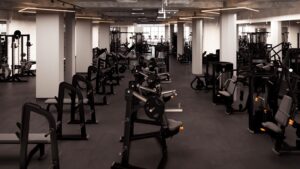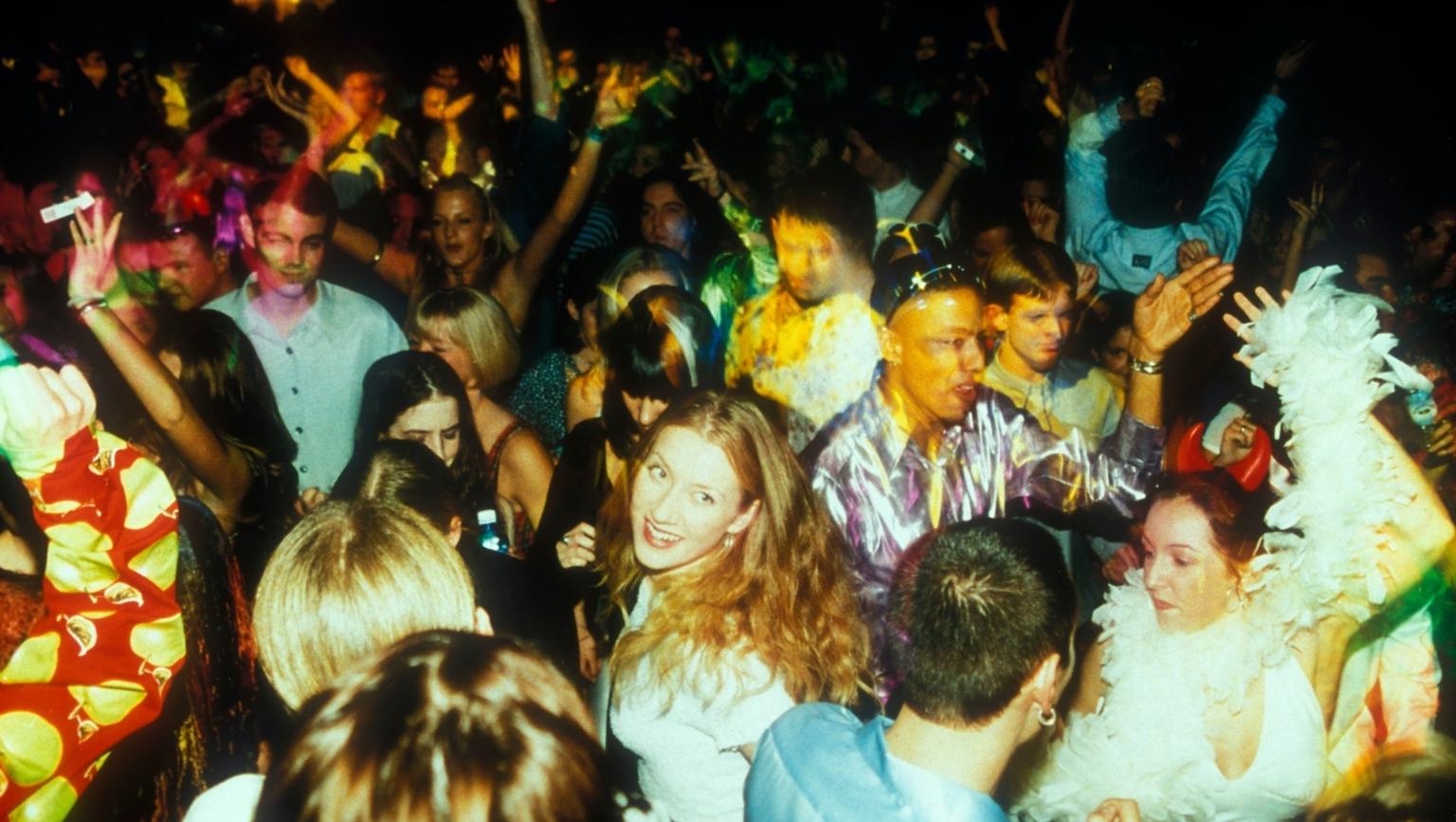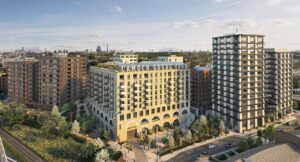
The Basement Gym + Studio opens in Camden Town
Camdenist readers get 50% off their first month’s membership, too

If you know – or perhaps need convincing – of the vital role that nightlife plays in today’s society
T he night time is precious. Culture is forged from 6pm to 6am. For many of us it’s probably the main reason we endure the stresses and costs of living in a metropolis at all. Yet still this dynamic fire in the belly of society can tend to be viewed as little more than a nuisance, a danger, a morally bankrupt vomit of high street hedonism, complete with associated noise, litter and intoxicated disorder.
Traditionally, local media have led the charge against nightlife, wheeling out predictable negative headlines whenever late licences are proposed, delighting in scare stories about nocturnal crime and quick to indulge in salacious editorial clichés when other people are seen to be having too much fun.
At Camdenist we are unashamed champions of the night in its many guises. As you’ll see in our print magazine ‘Camdenist Presents…The Night’, we celebrate all those who make things happen into the small hours. The default reader to which local press everywhere seem endlessly enamoured is a right curtain-twitching grumpy so-and-so. While we should all be able to exercise our right to a decent night’s sleep and our doorways remaining free from piss, surely after staring over the precipice of the Covid shutdown, now is the time to rethink and reset those repressive inclinations towards nightlife?

Most residents of London’s vibrant central boroughs relish the thought of living in a 24-hour city, and often wonder why their ability to eat, drink, dance (and repeat) is still curtailed by strict regulation. Mike Kill heads up the Night Time Industries Association (NTIA), and suddenly found himself a regular on TV news when Boris Johnson suggested people should avoid nightclubs, theatres, pubs and restaurants in March 2020 – without explicitly shutting them down. The financial fallout from that botched announcement and the repeated lockdowns that followed, has kept Mike on our TV screens ever since. It’s been an unimaginably tough time for the businesses he represents, which all rely on people coming together in busy social spaces, but it has also created an opportunity for nightlife to finally get a seat at the table with government.
“The biggest thing to emerge from all this is that we’ve had our ground zero moment.” says Mike. “It’s given us a chance to reflect and re-evaluate challenges that – given the usual pace of our industry – we’ve not had time to do before. That’s things like safeguarding, equality, and addressing a lack of understanding about the cultural, economic and social value of what we do, too.”
That’s not just flagging up £112bn in annual revenues and 1.6m jobs that night time hospitality venues were generating pre-pandemic, but also educating those in power about the joy, creativity and vitality of life after dark, which they often are quick to overlook.
“UK nightlife has been fairly self-sufficient since the explosion of electronic music 30 years ago,” says Mike, “but what Covid made us realise is that we’ve had a lack of representation at the political table as a result. We had to educate people on the run during Covid, as we all know the worldwide heritage and value of our scene, but those sat in government really don’t. The role we’re now playing at the NTIA is educating MPs and local councillors about our true worth.”

It wasn’t just being banned from trading by lockdown that has shaken the foundations of the previously thriving nightlife scene. Staff shortages particularly in the security sector, bar stock and technical equipment supply issues due to Brexit, and then the recent needle spiking panic which resulted in boycotts of venues, have all made it the most challenging period ever if you are a provider of music and good times. That’s all piled on top of the usual set of problems with archaic licencing laws, venue closures and onerous regulations.
“The way licencing is currently set up, it’s very easy for a single resident to get you shut down,” says Rob Star, owner of a string of pubs across the capital including The Star of Kings on York Way. “Out of 200 people on the block, 199 of them might think it’s brilliant to have a thriving pub on their doorstep, but if one single person hates it, they have all the power. Therein lies the problem; you’re always at risk of getting shut down by that one person who is persistently complaining. If someone has left your venue and goes around the corner and starts shouting, everything is still on the side of the complainant, but there’s only so much we can do.”
Enforcing ever-more stringent rules about use of outdoor space at night has already been proved ridiculous with the sudden need to prioritise ventilation during the pandemic. Camden’s ‘streateries’ may have finally moved the needle towards the al fresco dining culture so beloved of our continental neighbours, and it looks like the outdoor tables are now here to stay. Meanwhile, after years of depressing closures of cherished night time music venues the months ahead are looking massively exciting for new openings.

After a multi-million pound refurb (and a very close shave with a fire), Camden’s iconic High Street venue finally reopened in April 2022. The main auditorium was already legendary for the role-call of global artists who have played there, but this new incarnation sees a total of nine performances spaces, from a brand new 200-capacity intimate venue to a DJ booth in the ground floor shop, a jazz club and rooftop cocktail terrace.
“We’re creating a huge platform for new artists with all the venues and spaces within the new building,” KOKO’s CEO and Founder Olly Bengough tells us, “while also providing the media and distribution for them to be heard.” That means the most state-of-the-art broadcast facilities are now built-in to the fabric of the historic old theatre, alongside its enviously swanky-looking new private members club.
“We believe that the behind-the-scenes storytelling opportunities for artists, which allows them to take their fans on a journey with them in a way which hasn’t been done before, is truly unique. The opportunities for creativity are huge, so culturally we’re hoping our impact will be long-lasting. We will be booking over 1,000 shows per year in the new KOKO and we’re proud to remain fully independent.”
The weight of responsibility for the project succeeding is not lost on Olly either, “We are protecting a 120-year-old cultural legacy in London,” he says, “which is so important, especially in these times when we need positive momentum.”
On a smaller scale, but equally exciting for the grassroots local music scene, Chalk Farm Road’s old Belgo restaurant has reopened as new 140-capacity live venue The Camden Club. While long-standing venues on the circuit that were forced to crowd-fund desperately to survive during lockdown, including the Fiddler’s Elbow, Spiritual Bar and Black Heart, are all offering nightly live music again, having weathered the storm.
Just down Hampstead Road, Here at Outernet is the largest new live event venue to be built in Central London since the 1940s, the 2000-capacity space is located beneath the striking 8k wraparound screens of the Now Building at Tottenham Court Road tube. It goes some way towards repaying Londoners for the loss of the nearby Astoria Theatre to Crossrail beneath.
The Outernet complex backs onto historic Denmark Street and includes the reopening of the famous 12 Bar Club too, plus a clause ensuring music remains central to the remaining shops of Tin Pan Alley. “Ultimately this project will be judged on history,” Outernet CEO Philip O’Ferrall told Camdenist last year, “and that means creating a future as well as a past for music here.”

Interestingly, the tendency for looking back fondly may well be what helps secure the future for a truly vibrant nightlife in the city. “If you look at all the Acid House exhibitions at places like the Saatchi Gallery and the biographies of the big DJs coming out,” says Rob Star, “our scene is much more part of mainstream culture than it ever was before, and that’s got to be a good thing.”
While Covid may have put a rocket under authorities respecting the role of the night time economy, the process has been taking place for years as the industry matures. The enthusiasts behind the illegal raves of the 80s and the superclubs of the 90s have moved on to run some of the most slick and professional events operations on the planet, even if the powers-that-be haven’t been paying much attention.
Bradley Thompson is Managing Director at formerly Camden Town-based events organisation Broadwick Live. Down at their Printworks venue in the huge old newspaper factory at Surrey Quays, the company is showing what the future looks like. They’re responsible for breaking new ground with world-class venues and promotions across London and beyond, working closely with developers and the corporate sector to make sure club events are positioned as proper cultural happenings, with the funding and infrastructure to match.
Mixing the use of their spaces tided the whole operation through lockdown, with Printworks used for filming the new Batman movie, assorted Netflix series and live streaming gigs, including Parliament Hill School alumni Dua Lipa’s record-breaking virtual gig that hit 5 million paid viewers in its first weekend. Running the increasingly popular model of daytime nightclub events has also swerved many of the usual licencing issues while neatly extending the night time culture into a new realm.
“We’ve been able to demonstrate what the shows we do here bring to the economy,” says Brad, “and I think that’s really helped challenge the perception of clubs as somehow dealing in lowbrow culture. On some days, maybe 30% of our audience is international too, which means people are making more of a considered purchase around coming, including the travel, hotels and restaurants, to really make a weekend of it.”

With the appetite for mega events of the kind Broadwick Live produce each week proven, (they are typically sold out weeks in advance), an inconvenient truth for councils and stuffy neighbourhood organisations is that inviting in more night time economy ventures is one sure way to save ailing local high streets ravaged by the dramatic shift to online retail.
Abandoned department stores are already being converted to leisure uses, with eating and drinking, music and dancing all likely to be key to a successful reinvention of these spaces. But they will need the authorities to be willing to permit an expansion of the after dark culture right now to make this vision viable.
“People tend to live in cities because they want to have fun,” KOKO’s Olly Bengough agrees. “The minute you restrict late night culture, you lose your talent pool. You can’t have a creative service industry – which equates to 13% of the UK economy – with average talent. It’s not just about ‘noise’, it’s about creating a vibrant, healthy culture overall, and nightlife is one strand of that. If you don’t support it, the interesting people will move on.”
The recovery of arts and hospitality, let alone the high street, needs a careful and considered fresh approach. In Camden there are no music venues granted 24-hour licences, but plenty of branches of Tesco and casinos seem to be able to get them. “Given that this is the ground zero moment we absolutely need a more robust and flexible licencing policy,” says NTIA’s Mike Kill. “We need to consider creating 24-hour hubs across London that will also help the recovery of the high street.”
For anyone who took it for granted, considered it lowbrow, or tried to have it silenced, the returning vibrancy of the night looks set to remind us all of its place right at the very heart of culture.
This article first appeared in our print magazine: Camdenist Presents… The Night.
Tom Kihl is founder of Camdenist. He’s a former editor at DJ Magazine and at Ministry of Sound

Camdenist readers get 50% off their first month’s membership, too

A brand new hairdressing and barbering academy has landed in Camden Town and is now seeking style-conscious models and enthusiastic trainees

We speak to founder, Sol, about bringing the studio to Kentish Town

Explore the neighbourhood’s brand new neighbourhood